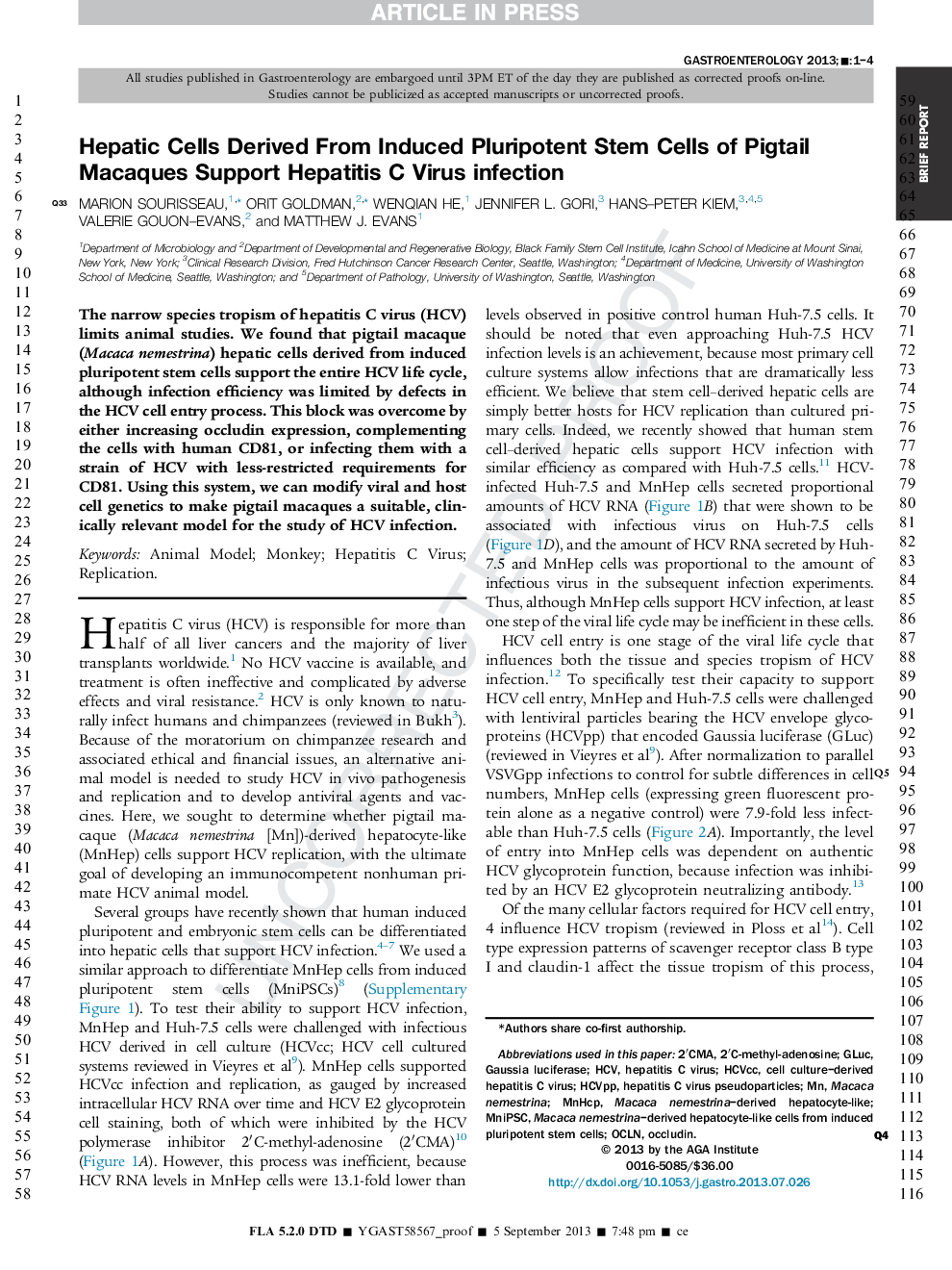| Article ID | Journal | Published Year | Pages | File Type |
|---|---|---|---|---|
| 6094830 | Gastroenterology | 2013 | 11 Pages |
Abstract
The narrow species tropism of hepatitis C virus (HCV) limits animal studies. We found that pigtail macaque (Macaca nemestrina) hepatic cells derived from induced pluripotent stem cells support the entire HCV life cycle, although infection efficiency was limited by defects in the HCV cell entry process. This block was overcome by either increasing occludin expression, complementing the cells with human CD81, or infecting them with a strain of HCV with less restricted requirements for CD81. Using this system, we can modify viral and host cell genetics to make pigtail macaques a suitable, clinically relevant model for the study of HCV infection.
Keywords
Related Topics
Health Sciences
Medicine and Dentistry
Gastroenterology
Authors
Marion Sourisseau, Orit Goldman, Wenqian He, Jennifer L. Gori, Hans-Peter Kiem, Valerie Gouon-Evans, Matthew J. Evans,
